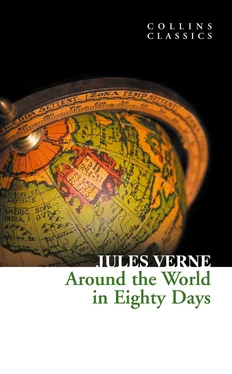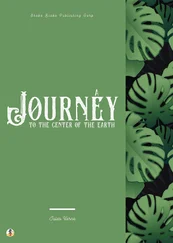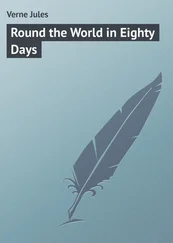In which Phileas Fogg and his Companions venture through the Forests of India, and what follows
The guide, in order to shorten the distance to be gone over, left to his right the line of the road, the construction of which was still in process. This line, very crooked, owing to the capricious ramifications of the Vindhia mountains, did not follow the shortest route, which it was Phileas Fogg’s interest to take. The Parsee, very familiar with the roads and paths of the country, thought to gain twenty miles by cutting through the forest, and they submitted to him.
Phileas Fogg and Sir Francis Cromarty, plunged to their necks in their howdahs, were much shaken up by the rough trot of the elephant, whom his mahout urged into a rapid gait. But they bore it with the peculiar British apathy, talking very little, and scarcely seeing each other.
As for Passepartout, perched upon the animal’s back, and directly subjected to the swaying from side to side, he took care, upon his master’s recommendation, not to keep his tongue between his teeth, as it would have been cut short off. The good fellow, at one time thrown forward on the elephant’s neck, at another thrown back upon his rump, was making leaps like a clown on a springboard. But he joked and laughed in the midst of his somersaults, and from time to time he would take from his bag a lump of sugar, which the intelligent Kiouni took with the end of his trunk, without interrupting for an instant his regular trot.
After two hours’ march the guide stopped the elephant, and gave him an hour’s rest. The animal devoured branches of trees and shrubs, first having quenched his thirst at a neighbouring pond. Sir Francis Cromarty did not complain of this halt. He was worn out. Mr Fogg appeared as if he had just got out of bed.
“But he is made of iron!” said the brigadier-general, looking at him with admiration.
“Of wrought iron,” replied Passepartout, who was busy preparing a hasty breakfast.
At noon the guide gave the signal for starting. The country soon assumed a very wild aspect. To the large forests there succeeded copses of tamarinds and dwarf palms, then vast, arid plains, bristling with scanty shrubs, and strewn with large blocks of syenites. All this part of upper Bundelcund, very little visited by travellers, is inhabited by a fanatical population, hardened in the most terrible practices of the Hindu religion. The government of the British could not have been regularly established over a territory subject to the influence of the rajahs, whom it would have been difficult to reach in their inaccessible retreats in the Vindhias.
They were descending the last declivities of the Vindhias. Kiouni had resumed his rapid gait. Towards noon, the guide went round the village of Kallenger, situated on the Cani, one of the tributaries of the Ganges. He always avoided inhabited places, feeling himself safer, in those desert open stretches of country which mark the first depressions of the basin of the great river. Allahabad was not twelve miles to the north-east. Halt was made under a clump of banana trees, whose fruit, as healthy as bread, “as succulent as cream,” travellers say, was very much appreciated.
At two o’clock, the guide entered the shelter of a thick forest, which he had to traverse for a space of several miles. He preferred to travel thus under cover of the woods. At all events, up to this moment there had been no unpleasant meeting, and it seemed as if the journey would be accomplished without accident, when the elephant, showing some signs of uneasiness, suddenly stopped.
It was then four o’clock.
“What is the matter?” asked Sir Francis Cromarty, raising his head above his howdah.
“I do not know, officer,” replied the Parsee, listening to a confused murmur which came through the thick branches.
A few moments after, this murmur became more defined. It might have been called a concert, still very distant, of human voices and brass instruments.
Passepartout was all eyes, all ears. Mr Fogg waited patiently, without uttering a word.
The Parsee jumped down, fastened the elephant to a tree, and plunged into the thickest of the undergrowth. A few minutes later he returned, saying:
“A Brahmin procession coming this way. If it is possible, let us avoid being seen.”
The guide unfastened the elephant, and led him into a thicket, recommending the travellers not to descend. He held himself ready to mount the elephant quickly, should flight become necessary. But he thought that the troop of the faithful would pass without noticing him, for the thickness of the foliage entirely concealed him.
The discordant noise of voices and instruments approached. Monotonous chants were mingled with the sound of the drums and cymbals. Soon the head of the procession appeared from under the trees, at fifty paces from the spot occupied by Mr Fogg and his companions. Through the branches they readily distinguished the curious personnel of this religious ceremony.
In the first line were the priests, with mitres upon their heads and attired in long robes adorned with gold and silver lace. They were surrounded by men, women, and children, who were singing a sort of funeral psalmody, interrupted at regular intervals by the beating of tom-toms and cymbals. Behind them on a car with large wheels, whose spokes and felloes represented serpents intertwined, appeared a hideous statue, drawn by two pairs of richly caparisoned zebus. This statue had four arms, its body coloured with dark red, its eyes haggard, its hair tangled, its tongue hanging out, its lips coloured with henna and betel. Its neck was encircled by a collar of skulls, around its waist a girdle of human hands. It was erect upon a prostrate giant, whose head was missing.
Sir Francis Cromarty recognised this statue.
The goddess Kali,” he murmured; “the goddess of love.”
“Of death, I grant, but of love, never!” said Passepartout. “The ugly old woman!”
The Parsee made him a sign to keep quiet.
Around the statue there was a group of old fakirs, jumping and tossing themselves about convulsively. Smeared with bands of ochre, covered with cross-like cuts, whence their blood escaped drop by drop—stupid fanatics, who, in the great Hindu ceremonies, precipitated themselves under the wheels of the car of Juggernaut.
Конец ознакомительного фрагмента.
Текст предоставлен ООО «ЛитРес».
Прочитайте эту книгу целиком, купив полную легальную версию на ЛитРес.
Безопасно оплатить книгу можно банковской картой Visa, MasterCard, Maestro, со счета мобильного телефона, с платежного терминала, в салоне МТС или Связной, через PayPal, WebMoney, Яндекс.Деньги, QIWI Кошелек, бонусными картами или другим удобным Вам способом.












